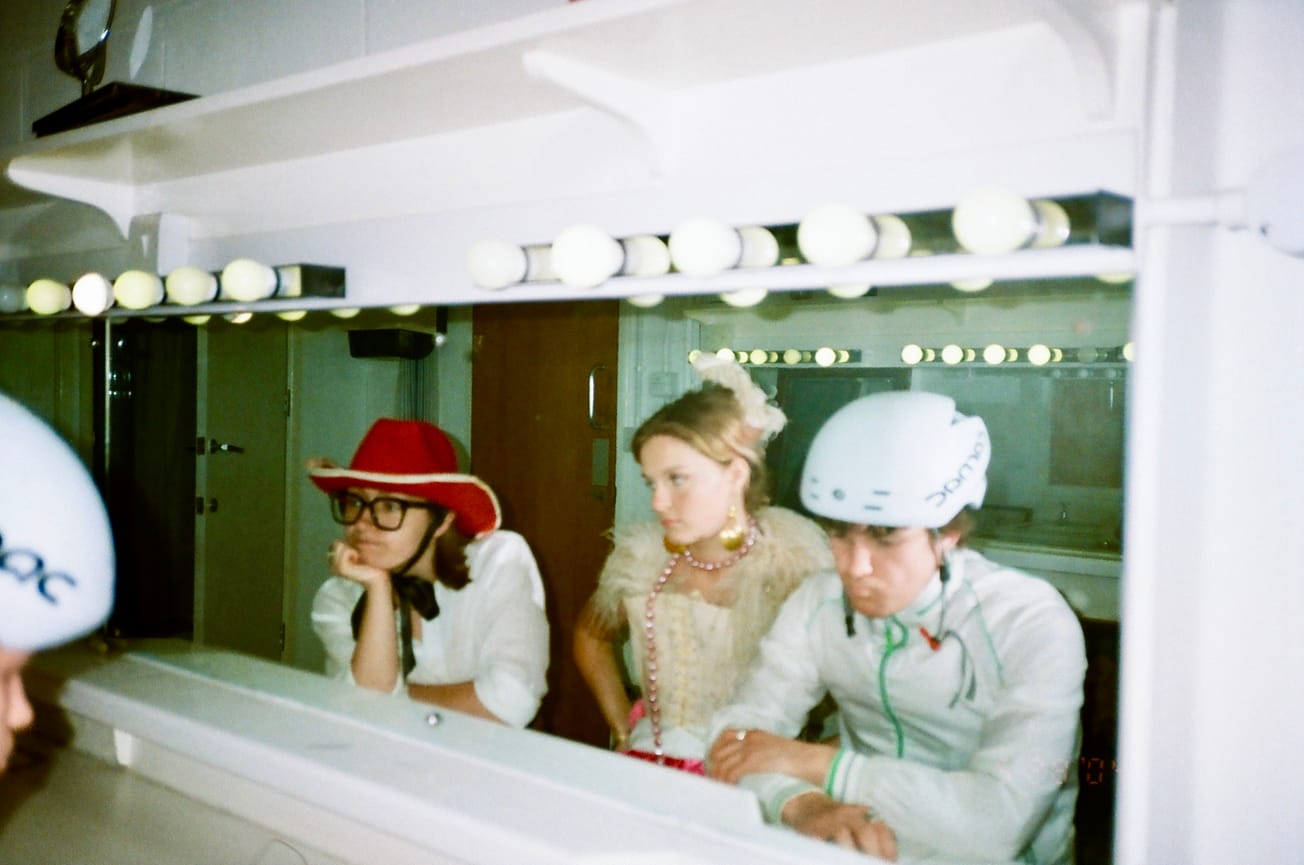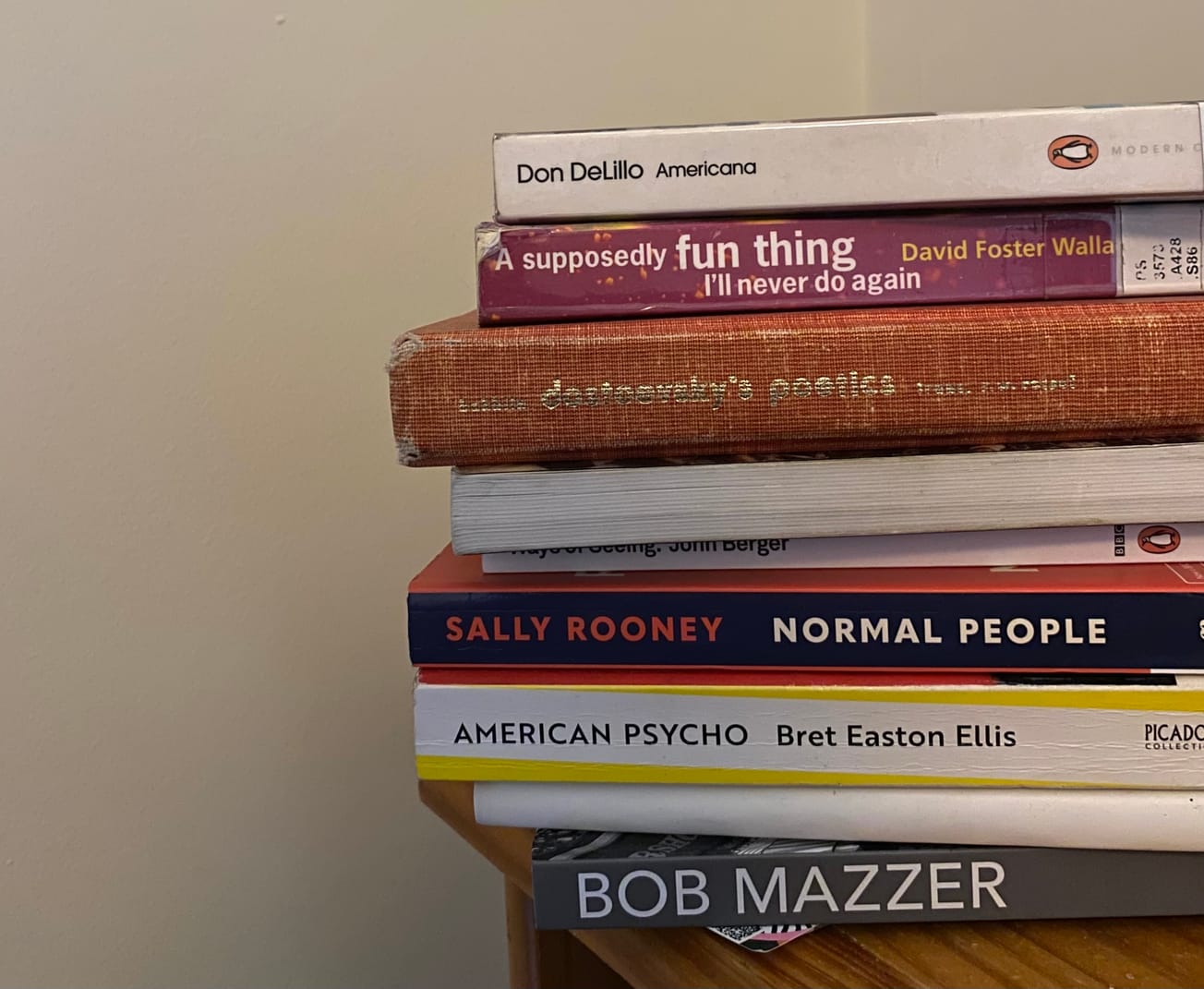By Honey Ryder, Second year, English
Re-adapting to university life after summer presents its own unique challenges. As well as moving in, connecting with friends, and learning our schedules, we have an onslaught of course readings to tackle. While summer readings can be as frivolous as we please, diving back into set texts can make us feel out of our depth.
During the term, there is little time to read for fun. We prioritise academic reading and resort to audiobooks or a few pages of casual reading a night. We cope by telling ourselves that it is okay to sideline our recreational reading until our workload decreases.
After the pressure of end-of-year exams, detoxing our brains with light-hearted summer reads is a relief. The first book I read when university ended for the summer was a romance fantasy cheesy enough to make an English student’s skin crawl. Still, it helped me rediscover the joy of reading as a pastime instead of a requirement for my degree. When the thought of reading one more convoluted page by a literary great was uninviting, that book lifted me from my reading slump.
Eventually, I returned to reading more intellectually stimulating novels. I hoped to feel more prepared for the university-assigned readings by easing myself into more challenging texts. The transition into academics should not be an abrupt change but a development of your summer reading.
This is easier said than done. Reading transforms from an indulgence into a chore in the time it takes to open an Outlook email. I study English Literature, where the lines between reading for pleasure and academic purposes are blurred. This can be a positive thing. Work often feels like play. However, being forced to read a tedious or difficult book dulls your passion. An innate rebelliousness overcomes you when something is compulsory rather than optional. Also, knowing that the results of your reading will be examined and quantified per a grading system can kill any eagerness.
The key is to shift your thinking. You can learn just as much from the books you do not like as the books you do. Understanding why you dislike a text, if it has something to do with the writing style or the organisation of information, enhances your critical eye and helps you improve your own writing. Lecturers choose the compulsory readings for a reason, so finding the usefulness in something you deem uninteresting will make you a more active, engaged reader.
Persisting with a book that you loathe is no mean feat. It helps to see reading as a competition, wherein you keep trying to outdo yourself. Nothing beats clicking ‘I’m Finished!’ on a book on Goodreads or crossing an item off your reading list. Let the thought of adding one more book to your brain’s infinite catalogue motivate rather than deter you.
I would advise you to start early. Cramming your reading squashes any potential for pleasure. Reading your academic books in a comfortable chair, with a cup of tea, the relaxed way you would read a book of your choice might allow you to discover things you like about them or at least make for an enjoyable experience. Take the pressure off yourself and see what reveals itself on the page.
Resurrecting the critical thinking part of the brain after a summer of passive reading is a struggle. Again, easing yourself into it is the best way forward. I indicate noteworthy lines and passages in a text so that my future self can return to them and re-examine them in more detail. You do not need to be making nuanced annotations from the get-go. Give yourself time to get back into the rhythm of a university student.
It helps to have a reading routine. Tackling a pre-determined number of chapters or pages per day prevents feeling swamped with required reading. It also fuels that dopamine-inducing sense of accomplishment when you meet your daily target.
We want the changeover from summer to university to be as painless as possible. If you approach your course reading with the right mindset and efficiently manage your time, you will prepare yourself well for the next academic year- and still have time for a guilty pleasure read or two.
How are you managing the transition from summer to academic reading?









